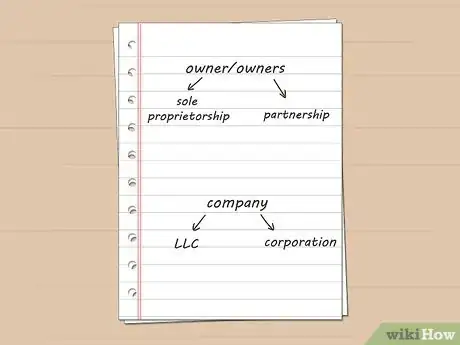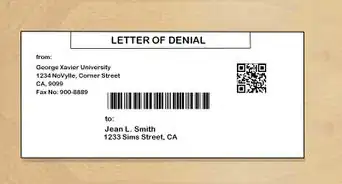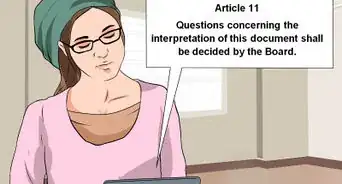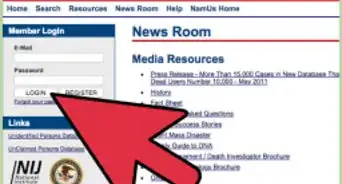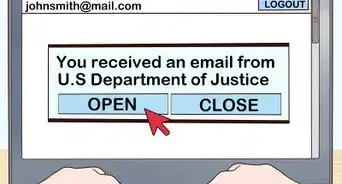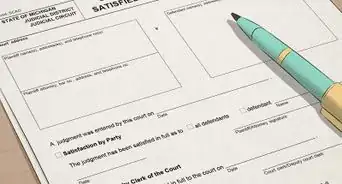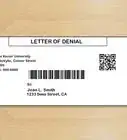This article was written by Jennifer Mueller, JD. Jennifer Mueller is an in-house legal expert at wikiHow. Jennifer reviews, fact-checks, and evaluates wikiHow's legal content to ensure thoroughness and accuracy. She received her JD from Indiana University Maurer School of Law in 2006.
There are 7 references cited in this article, which can be found at the bottom of the page.
This article has been viewed 12,636 times.
If a car dealer used deceptive tactics to trick you into buying a poor quality vehicle, you may be able to sue them for misrepresentation. Dealer fraud lawsuits may also involve a dealer who lies about the warranty or included services that are available. However, lawsuits are time-consuming, stressful, and expensive, so leave litigation as a last resort. Before you file a lawsuit, try to negotiate with the dealer or get help from alternative dispute resolution services. If none of these efforts resolve the problem, you may find relief in court.[1]
Steps
Negotiating with the Dealer
-
1Gather evidence of the misrepresentation and your loss. To sue a dealer for misrepresentation, you need to also show that you suffered some loss as a result. It's not enough that you wouldn't have bought the car if you had known the truth. You also need to be able to prove that the dealer intentionally lied to you or deceived you in some way.[2]
- For example, if the dealer rolled back the odometer so they could sell you a car that had significantly fewer miles on it than it actually did, you would need proof that the odometer had been tampered with, such as a previous title showing higher mileage.
- If you bought a used car, a vehicle history report may provide you with the proof you need that the dealer misrepresented the car's history. However, you would still need to show a loss in some way. Typically, this is done by showing that you lost money because the car was worth far less than you paid for it.
- If the misrepresentation involves a warranty or included services, gather any written proof you have of the warranty or included services offered along with evidence that those services were not provided for free.
-
2Contact the dealer to express your concerns. In most states, you can't actually sue a car dealer without first talking to them and giving them an opportunity to resolve the problem. Call or visit the dealer, show them your evidence, and explain what you want to happen as a result.[3]
- Think about what the best option would be for you in the situation. For example, you might want the dealer to replace your car with another car on their lot. Or, you might want your money back for the purchase price of the car.
Advertisement -
3Put your complaint in writing. Sending a letter to the dealer provides a record that you attempted to work with them before you took the matter to court. In some states, you're required to present this when you file your lawsuit. However, even if it's not required, it can still save you a lot of time and money.[4]
- There's a complaint letter template available at https://www.usa.gov/complaint-letter that you can adapt to your situation if you're unsure what to include in your letter.
Warning: Avoid threatening the dealer with a lawsuit if they don't resolve your complaint. This could put them on the defensive and make them less willing to work with you, especially if they believe you wouldn't be able to win in court.
-
4Discuss a reasonable solution with the dealer. You may have a dealer who digs their heels in and refuses to negotiate with you or acknowledge your problem in any way. However, this is usually rare. Car dealers need sales, so they typically are willing to work with you to some extent, if only to keep you as a customer in the future.[5]
- For example, if you discovered the car you bought was worth a lot less than you paid for it, you might tell the dealer that you would still be willing to buy the car for the lower price. If you paid for the car in cash, this would mean that the dealer would have to refund you the difference between what you paid for the car and the car's true value.
- If the dealer misrepresented the warranty available on the car, for example, you might be comfortable allowing them to service your car for free for a year or two.
- Keep the discussion professional and avoid getting personal or trying to argue with the dealer. Even if they insist they did nothing wrong, they may still be willing to find a compromise if you keep a level head and treat them with politeness and respect.
-
5Work with a consumer protection agency. If the car dealer is unwilling to work with you, a consumer protection agency may be able to help. These government agencies help consumers resolve problems they have with goods and services.[6]
- To find your state consumer protection agency, go to https://www.usa.gov/state-consumer and select the name of your state from the drop-down menu.
- You may also be able to find nonprofit organizations in your area that would be willing to help you. Search online or ask someone at your state consumer protection agency if there are nonprofit consumer protection organizations in your area.
Tip: In some states, you can also file a complaint with the DMV and get their help to resolve your problem.
Using Mediation or Arbitration
-
1Check the sales contract to see if mediation or arbitration is required. Many car sales contracts have a clause that requires any disputes related to the sale of the car by resolved using alternative dispute resolution. Most often, the clause requires binding arbitration.[7]
- If the contract requires binding arbitration, this means you must have your complaint heard by an independent arbitrator, or panel of arbitrators. These arbitrators are usually attorneys who have experience in auto sales disputes. The decision they make is final and can't be appealed anywhere else.
- If you have a choice, mediation may offer you a more even playing field. If you and the car dealer can't work out a settlement through mediation, you can still file a lawsuit or take advantage of other options that may be available to resolve your dispute.
Tip: Some states require civil litigants to attempt mediation before filing a civil lawsuit. A local attorney or the court clerk can tell you if this requirement would apply to your case.
-
2Work with BBB Auto Line if possible. BBB Auto Line is an alternative dispute resolution service offered by the Better Business Bureau. The program isn't available in all states, but many popular manufacturers have signed up for the service, including Chevrolet, Ford, Kia, and Nissan.[8]
- To determine if you can use the service, go to https://www.bbbprograms.org/programs/bbb-autoline/ and check the list of participants.
- BBB Auto Line primarily resolves warranty disputes, but may also handle other complaints.
-
3Consult an attorney who specializes in mediation or arbitration. Although you don't need an attorney to represent you if you're using mediation or arbitration, it may be a good idea if the sales contract requires binding arbitration. Even if you end up not hiring an attorney, they can help you with your case and give you some basic advice on how to proceed. [9]
- Keep in mind that corporations are typically required to have attorney representation. If the car dealer is incorporated, it's probably better for you to have a lawyer on your side since they'll have at least one, and likely a team of lawyers.
- If your sales contract requires mediation or arbitration, you can assume that the dealer has been through the process before and is familiar with it. Since it's likely your first time in this situation, hiring an attorney can help even the playing field.
-
4Contact a mediation or arbitration firm in your area. Your local court or bar association will likely have a list of approved mediators and arbitrators you can choose from. There may also be specific services listed in your sales contract that are approved to handle disputes.[10]
- If you've hired an attorney to represent you, they likely will handle the process of choosing a mediator or arbitrator for you. They typically have specific services they commonly use.
- You can also use the American Arbitration Association's mediator search tool, available at https://www.aaamediation.org/find-a-mediator, to help find a mediator.
-
5Gather your evidence in preparation for the proceeding. In either mediation or arbitration, you're allowed to present evidence and witnesses that support your argument. Arbitration tends to be more like a courtroom trial, while mediation is considerably more casual.[11]
- You'll likely get a brochure from the mediator or arbitrator that explains what will happen at the proceeding and the types of evidence you can bring along with you.
- If you've hired an attorney, they'll help you prepare for the proceeding, including going over what you'll say and how you'll present your case.
-
6Participate in your mediation or arbitration proceeding. Although alternative dispute resolution proceedings are not nearly as formal as a trial, you should still dress in neat, conservative clothing, as though you were going to a job interview. Arrive at the location at least 15 minutes early and let the receptionist know who you are and why you're there.[12]
- Occasionally, mediation or arbitration proceedings are held in the local courthouse. If so, get there at least 30 minutes before the scheduled time so you have time to go through security.
- In a mediation, the mediator will go back and forth between you and the car dealer in an attempt to reach an agreement on a settlement.
- Arbitration proceedings, on the other hand, are run more like a trial, although the rules are looser and the atmosphere is less formal. You should still treat the arbitrator with respect. If they ask you a question while you're talking, stop and answer their question before you continue.
Tip: If you use mediation and don't reach an agreement, you typically retain the right to sue the dealer in court. However, if you use binding arbitration, the result is final. You won't have the opportunity to sue the dealer or appeal the decision if you aren't satisfied with it.
Filing a Civil Lawsuit
-
1Determine how ownership of the dealership is structured. A car dealership may be a sole proprietorship, a partnership, and LLC, or a corporation. If it's an LLC or a corporation, you would be suing the company — not the individual dealer who sold you the car. In the case of a sole proprietorship or partnership, you would sue the owner or owners of the dealership.[13]
- If the person who sold you the car is not one of the owners of the dealership, you can still name that person in your lawsuit. However, they would not be one of the parties in the case because they are an employee, which means the owner of the dealership holds responsibility for their actions.
-
2Talk to an attorney who specializes in consumer law. If you get to the point where you've decided to file a lawsuit, having an attorney is a must. Consumer law is complicated, and these cases can take a lot of time and money. However, you should be able to find an attorney who is willing to take your case on a contingency fee basis, meaning you don't owe them anything unless you settle the case or win in court.[14]
- Your attorney may also try to determine whether the lawsuit has class-action potential. If the car dealer made misrepresentations to you, it was likely not an isolated incident. If your attorney can get a large group of people together with the same complaint, you have a better chance of recovery.
-
3Submit notice of your intention to sue if required. In some states, the courts require that you file a form with the court that supplies notice that you intend to sue the car dealer. This notice is sent to the car dealer and gives them an option to attempt to settle with you before you take your case to court.[15]
- Your attorney will let you know if this notice is required for your case, and how long you'll have to wait before you can file the initial complaint to get the lawsuit started. You can use that time to prepare your case.
- At this point, the car dealer will be aware that you're serious about suing and that you've hired an attorney. Even if they were resistant in the past, they may become more willing to compromise once they know this.
-
4File your complaint against the car dealer. A civil lawsuit begins with a complaint. This document sets forth the facts that give rise to your claim and provide a specific dollar amount of damages you believe you're owed for losses you've suffered as a result of the car dealer's misrepresentation.[16]
- Once your complaint is filed, it's your responsibility (technically, your attorney's) to have the car dealer served. From the date the car dealer is served, they have a limited time to respond to your complaint — typically a couple of weeks. If they fail to respond, you may be able to go to court and get a default judgment. However, you shouldn't expect this to happen.
Tip: Don't be surprised if the car dealer responds to your complaint by filing a motion to dismiss your lawsuit. This is a fairly common response. The court may hold a hearing on the motion before allowing the case to proceed, or may simply ask each side for written arguments.
-
5Continue with discovery and settlement negotiations. After the car dealer responds to your complaint, your litigation enters the discovery phase. During this phase, both you and the car dealer ask questions and exchange information as you attempt to build your case. Discovery is by far the longest part of litigation.[17]
- At any time during this phase, the car dealer may offer to settle with you. Keep in mind that you aren't obligated to take any settlement offer, even if your attorney thinks you should.
- The vast majority of civil lawsuits settle long before trial. The evidence shared gives the attorneys on both sides a pretty clear indication of what the lawsuit is worth.
Warnings
- This article covers how to sue a car dealer for misrepresentation in the US. If you live in another country, the procedure may be different. Consult a local attorney who specializes in consumer law.⧼thumbs_response⧽
References
- ↑ https://sfvbareferral.com/how-to-sue-a-car-dealer-for-misrepresentation/
- ↑ https://sfvbareferral.com/how-to-sue-a-car-dealer-for-misrepresentation/
- ↑ https://sfvbareferral.com/how-to-sue-a-car-dealer-for-misrepresentation/
- ↑ https://www.usa.gov/complaint-letter
- ↑ https://sfvbareferral.com/how-to-sue-a-car-dealer-for-misrepresentation/
- ↑ https://www.usa.gov/car-complaints
- ↑ https://www.usa.gov/car-complaints
- ↑ https://www.bbbprograms.org/programs/bbb-autoline/
- ↑ https://lawreview.law.ucdavis.edu/issues/48/3/Articles/48-3_Cole.pdf
- ↑ https://www.nccourts.gov/help-topics/lawsuits-and-small-claims/arbitration-and-mediation
- ↑ https://www.nccourts.gov/help-topics/lawsuits-and-small-claims/arbitration-and-mediation
- ↑ https://www.nccourts.gov/help-topics/lawsuits-and-small-claims/arbitration-and-mediation
- ↑ https://sfvbareferral.com/how-to-sue-a-car-dealer-for-misrepresentation/
- ↑ https://www.hg.org/auto-dealer-fraud.html
- ↑ https://sfvbareferral.com/how-to-sue-a-car-dealer-for-misrepresentation/
- ↑ https://sfvbareferral.com/how-to-sue-a-car-dealer-for-misrepresentation/
- ↑ https://sfvbareferral.com/how-to-sue-a-car-dealer-for-misrepresentation/











